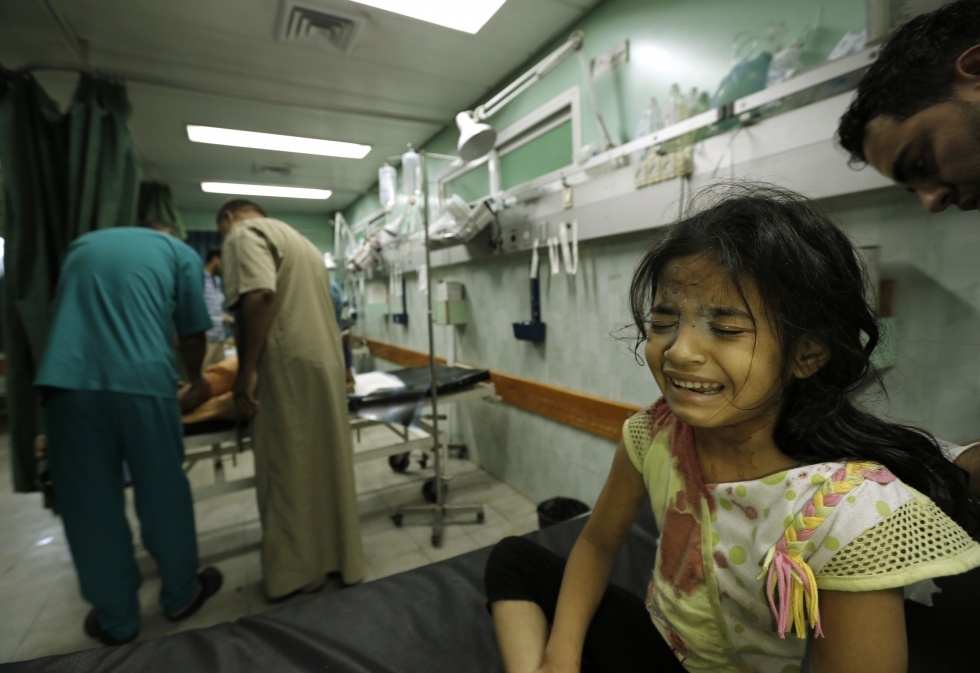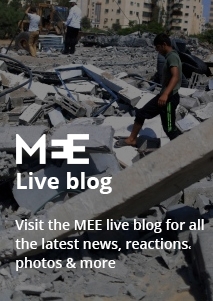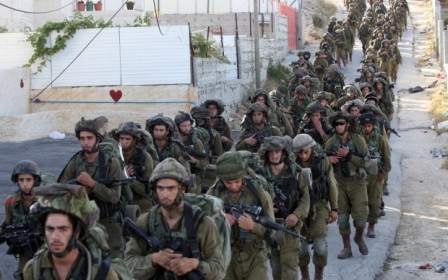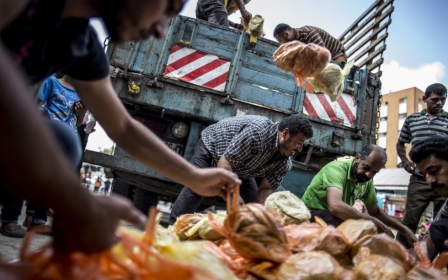Latest Gaza flashpoints: death toll soars as food and power crises take hold

The death toll continues to soar in Gaza on Thursday as Israel looks set to step up its military offensive in the coastal enclave.
More than 1,365 have now been killed in the Palestinian coastal enclave. Human rights groups say that approximately 80 percent of casualties have been civilian.
Israel called up 16,000 reserve soldiers on Thursday after an Israeli official told Haaretz that the military will “expand attacks against Hamas and the rest of the terror organisations.”
Amid the ongoing bombardment, Gaza is now suffering from a severe shortage of bread, which has been caused by a lack of power across the strip. The power station was bombed on Tuesday and officials say it will take up to a year for repairs to be completed.
Wednesday night began with relative calm, however, early on Thursday morning air strikes and artillery fire hit several locations.
Here is the latest summary of developments from MEE’s reporters in Gaza:
- The death toll in Gaza surpassed 1,370 on Thursday. 1,417 Palestinians were killed during Israel’s three week long Operation Cast Lead during 2008-9.
- Those killed include 315 children, 166 women and 58 elderly people. Nearly 8,000 people have been injured in Israel’s assault on the Palestinian enclave.
- 15 ambulance crew and 7 journalists have also been killed since the offensive began on 7 July.
- On Wednesday night there were two hours of relative quiet, apart from sporadic artillery firing, however, from 4am (0100 GMT) there were reports of intense bombing and air strikes in Gaza.
- 17 people were killed on Wednesday when Israeli forces bombed a busy market in Shejaiya. Doctors said there was evidence of shells directly hitting people, which made it impossible to identify some of the casualties. A journalist, two ambulance crews and a firefighter were killed in the attack.
- Hospitals are struggling to cope with a huge influx of patients, according to MEE’s Mohammed Omer, which has prompted smaller facilities to open the doors to the wounded. This is causing concern, as these hospitals are known to provide a lower standard of care.
- There has not been any electricity supply at all in Gaza City for the past three days. This has exacerbated a bread crisis, with bakeries unable to function without power.
- The psychological impact of the electricity blackout has been profound, particularly at night when people expect Israeli bombing and air strikes.
- There is a growing environmental crisis in Gaza, due to residents being unable to dump rubbish. The dump is close to the eastern border, which Israeli forces have designated a closed military zone.
- 133 UNRWA schools have now been damaged in the Israeli assault, after Halab school in north Gaza was hit on Thursday morning. Two people were seriously injured in the strike.
- A “few” Palestinian collaborators with Israel were summarily executed by Hamas and Islamic Jihad. They were informing Israeli intelligence about addresses and marking residential areas to be bombed.
New MEE newsletter: Jerusalem Dispatch
Sign up to get the latest insights and analysis on Israel-Palestine, alongside Turkey Unpacked and other MEE newsletters
Middle East Eye delivers independent and unrivalled coverage and analysis of the Middle East, North Africa and beyond. To learn more about republishing this content and the associated fees, please fill out this form. More about MEE can be found here.




